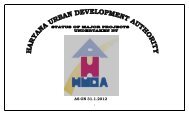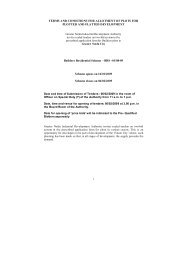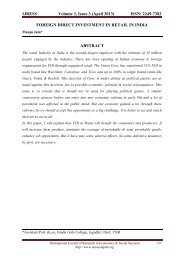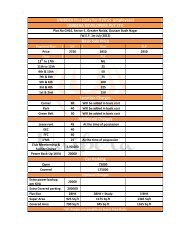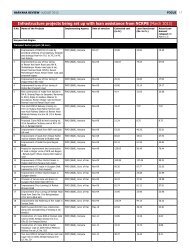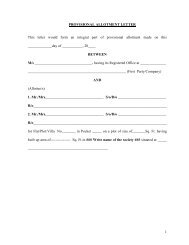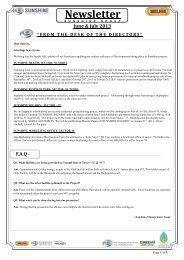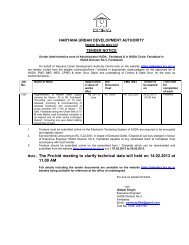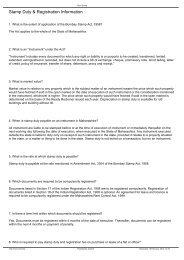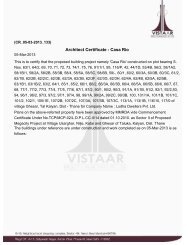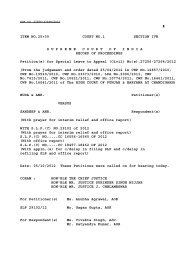eLegalix - Allahabad High Court Judgment Information System ...
eLegalix - Allahabad High Court Judgment Information System ...
eLegalix - Allahabad High Court Judgment Information System ...
You also want an ePaper? Increase the reach of your titles
YUMPU automatically turns print PDFs into web optimized ePapers that Google loves.
JUDGMENT/ORDER IN - WRIT - C No. 37443 of 2011 at <strong>Allahabad</strong> Dated-21.10....http://elegalix.allahabadhighcourt.in/elegalix/WebShow<strong>Judgment</strong>.doPage 179 of 19710/21/2011Learned counsel for the petitioners has submitted that in some of the cases there was an interim order passed bythe <strong>High</strong> <strong>Court</strong> for maintaining status quo and it was not open for the authority to make any allotment or createany third party right.In this bunch of writ petitions, in which there are more than 400 writ petitions for consideration only in few writpetitions interim orders were passed by this <strong>Court</strong> and in some of the cases said interim orders are of the datesubsequent to the date when the respondents claimed to have taken possession.Learned counsel appearing for the Authority as well as the learned counsel appearing for the intervenors havesubmitted that no land which was covered by any interim order of the <strong>High</strong> <strong>Court</strong> was neither allotted nortransferred and in some of the cases possession memo while taking possession mentions that possession wasnot taken since the land was covered by any interim order of the <strong>Court</strong>. The fact that most of the petitioners didnot invoke the jurisdiction of this <strong>Court</strong> under Article 226 of the Constitution immediately after declaration underSection 6 of the Act, 1894 or after taking of the possession has also relevance while considering the issue as towhat relief the petitioners are entitled in the facts of the present cases.We, thus conclude that the effect and consequence of third party rights, developments and the constructionsmade after taking of the possession by the authorities is a relevant factor which shall hereinafter be consideredwhile considering the issue as to what relief the petitioners are entitled.15. Effect of upholding of some of the notifcations in some writ petitions earlier decided.16. Conflicts in view of Division Benches:Both the above issues are taken together for consideration.The Division Bench while hearing main writ petition as noticed above in its referring order dated 26 July 2011 hasnoticed two contrary decisions of Division Bench of this <strong>Court</strong>. First judgment is Division Bench <strong>Judgment</strong> dated25 November 2008 in writ petition no.45777 of 2008, Harish Chand and others Vs State of U.P. and others andsecond judgment is judgment of the Division Bench dated 19 July 2011 in writ petition no.17068 of 2009 HarKaran Singh Vs. State of U.P. and others (2011 Volume VI, A.D.J. , 755)". In Harishchand's case the notificationsdated 12.3.2008 and 30 June 2008 acquiring the land of village Patwari was under challenge. The Division Benchdismissed the writ petition by following order:"Heard learned counsel for the petitioner and the learned Standing Counsel.Learned Standing Counsel has produced the original records pertaining the land acquisition proceedings underchallenge. The notification dated 20.3.2007 and 9.7.2008 under Section 4 and 6 respectively have been assailedon the ground that there is no material before the State Government to arrive at a conclusion and there was anurgency for invoking Section 17 of the Land Acquisition Act.We have perused the original records and we find that the District Magistrate had indicated various factors whichled him to arrive at a conclusion that the land was required urgently and there was justification for acquiring theland. The State Government having regard to the letters/reports on record formed an opinion that it was a fit caseto strike the urgency clause under Section 17 of the Land Acquisition Act. We are therefore of the opinion that thecontention raised on behalf of the writ petitioner has no force. Further, we are fortifying our opinion in view of thedecision of the Division Bench of this <strong>Court</strong> in case of Lakhami Vs. State of U.P. 2008 (9) ADJ 657 and JasrajSingh Vs. State of U.P. and others others 2008 (8) ADJ 329.Accordingly, we find no good grounds to interfere with the writ petition.The writ petition is dismissed."The second judgment in Har Karan Singh's case dated 19 July 2011 was also a writ petition in which thenotification dated 12 March 2008 under Section 4 read with Section 17(1) and 17(4) as well as notification dated30 June 2008 under Section 6 of Village Patwari was under challenge. The subsequent Division Bench noticedthe earlier Division Bench judgment in Harischand case but took the view that the petitioner's are not bound bythe judgement in Harischand's case and they have independent right to challenge the acquisition. On the basis oflaw laid down by Supreme <strong>Court</strong> the Division Bench in Har Karan Singh's case also observed that law ofacquisition of land by State applying the Section 17(1) and 17(4) has undergone a sea change after thejudgments of Supreme <strong>Court</strong> in Anand Singh's case, Radhey Shyam case, Devendra Kumar's case (supra)following was laid down in paragraph 30 in Har Karan Singh's case:



